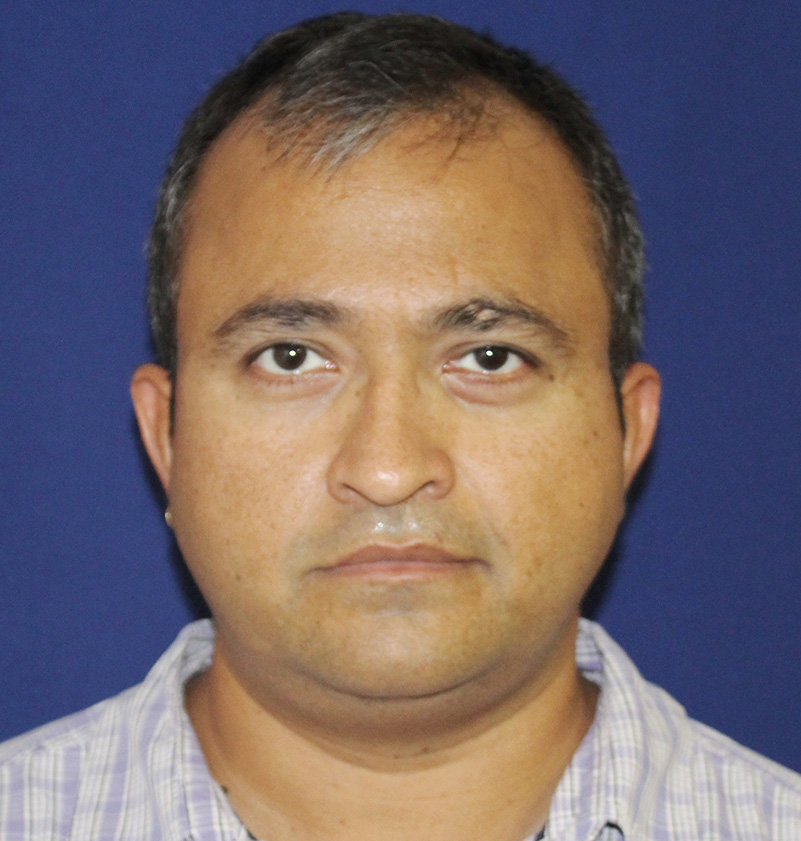BIO G 525 - Environmental Biotechnology & Waste Management
Course Description : Application of biotechnology to the management of environmental problems. Biotechnology for enhanced plant and animal production through biological insecticides, herbicides resistance, mineral cycling, conservation of genetic resources and biological nitrogen fixation. Use of biotechnological processes for pollution control, bioremediation of toxicants and treatment of domestic and industrial wastes. Ethical issues related with the release of genetically modified organism.
BIOF 216 - Water, Sanitation and Solid Waste Management
Course Description: Sanitation, Water and Solid Waste for Development course will consist of four modules Municipal Solid Waste Management in Developing Countries This module provides an overview of the municipal solid waste management situation in developing countries. Planning and Design of Sanitation Systems and Technologies This module deals with integrated sanitation planning, dealing with citywide planning as well as with planning for specific contexts such as informal settlements. Introduction to Household Water Treatment and Safe Storage In this module students will learn about the most important water treatment methods at household level, successful implementation strategies and about assessing the impact of HWTS.Introduction to Faecal sludge management This module deals with what faecal sludge is and introduces students to the engineering fundamentals and required information for the design and selection of technologies.
BIO F217 - Laboratory for Water, Sanitation and Solid Waste Management
Course Description: The basic science module is a 1-week on-site training which prepares the student for the capstone project. Student will learn or get a refresher training on how research works including practical skills on how to conduct capstone project. Apart from lab experiments which students will be conducting, they are also expected to do a capstone project. Capstone project follows a progression of modules: a) define topic; b) compile required reading, c) select site, d) write capstone proposal (2 pages), e) design field research and survey development, f) carry out field research, g) analyze data, h) write-up, i) submit project report (max. 15 pages).
SAN G511 – Sanitation Technology
Course Description: Inadequate sanitation is responsible for some 840,000 deaths, every year worldwide. For India alone, a recent study estimated that the total economic impact of inadequate sanitation amounts to Rs. 2.44 trillion (US$53.8 billion) a year —this was the equivalent of 6.4 percent of India’s GDP in 2006. This means per person across India an annual impact of Rs. 2,180 (US$48). Challenges arise from the wide range of options available and the differing environments and conditions to which each is suited. Experience shows that it is important to allow local involvement in the choice of solutions, but with a full grasp of the requirements of each option. In this course the full range of technological options will be discussed in detail.
SAN G515 – Emergency Sanitation and Leadership
Course Description: The Sanitation Emergency module has been developed in cooperation with major humanitarian organizations with the aim to enable participants to understand sanitation in a humanitarian context. It focuses on interdisciplinary humanitarian action including humanitarian principles and on how to work within the framework and coordination of humanitarian assistance. The stages of humanitarian aid, stakeholders in the international relief system, and their respective mandates will be discussed in this module, as well as the appropriate sanitation options. At the end of this module students will be able to plan, implement and monitor a sanitation response to an emergency situation. The Leadership module helps prepare professionals by teaching them how to productively influence their sector, workplace, and communities through an increased awareness of their personal leadership capabilities and the development of inter-personal communication skills. Through a series of practical and reflective group and individual exercises, as well as dedicated one-on-one coaching sessions, participants will gain an intimate understanding of the leaders they can be and develop their way forward to becoming future sanitation leaders.


 An Institute of Eminence
An Institute of Eminence







